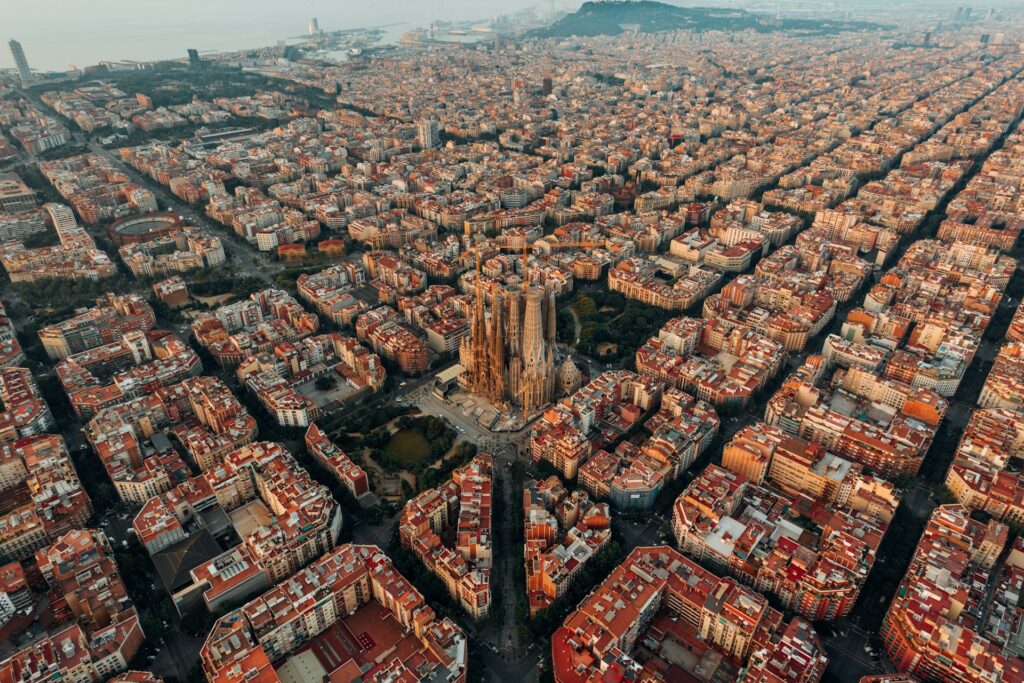
By: Natalia Pérez Mas, Account Executive and Social Media Manager.
.
Catalonia held elections on 12th May, which will bring about an upcoming change in the regional government. Currently, it is the republican pro-independence group ERC that governs alone and in minority; however, as we advanced, the Socialist Party led by Mr. Salvador Illa, won the elections with 27.96%% of the votes and 42 MPs. Behind, the pro-independence party ‘Junts Per Catalunya’, led by Mr. Carles Puigdemont (who fled Spain after being convicted of sedition) with 21.81% of the votes and 35 MPs. Both parties are currently vying for the leadership of the new regional government: the Socialist Party values governing in minority and ‘Junts’ seeks a pact of pro-independence forces.
However, both parties will find it difficult to reach an absolute majority of 68 MPs to be elected president. The republican and pro-independence party, ‘ERC’, despite its notable decline in these elections (13.68% of the votes and 20 MPs, thirteen less than in 2020) will be the key to a new government. Most likely, a coalition government between the Socialist Party, the pro-independence republican party ERC and Comuns Sumar (the Catalan split of ‘Sumar’ – junior partner of the national coalition government-, that has obtained 6 MPs and 5,82% of the votes), they would achieve the absolute majority in the regional parliament.
In fourth position and leading the right-wing bloc in Catalonia was the conservative Popular Party with 15 MPs (12 more than in the 2020 elections) and 10.97% of the votes. Vox, far-right party, followed with 11 MPs and ‘Alianza Catalana’, another far-right party but with pro-independence ideology, returned to the regional parliament with 2 MPs.

Source: El País.
Another interesting fact is the participation percentage, which has reached 57.9% of the inhabitants of Catalonia: 5 points more than in the previous elections of 2020. However, this is the fourth lowest participation figure since records have been kept, with 40% abstention.
Analysis of the results
As we detailed, the most likely option is a new left-wing government led by the Socialist Party and with the support of ‘ERC’ and ‘Comuns-Sumar’; either inside or outside the regional government. However, in the last days instability has plagued ERC and its leader, Mr. Pere Aragonés, who assured that they would not agree with the Socialist Party, resigned as president of the party two days after the elections. Other relevant positions such as the general secretary, have also announced their departure from ‘ERC’.
Therefore, the political instability in the region is maximum since a new government of left-wing forces (Socialist Party + ERC + Comuns-Sumar), although it would have an absolute majority, is currently complicated by the situation of ERC, explained above. For ERC it is not an easy decision since it would support the first non-independence government since 2010, contrary to its principles and ideology. In the last days, the Socialist Party has proposed a solo government with the parliamentary support of left-wing forces; an option that still depends on ERC.
Another scenario, with a government of pro-independence forces (Junts+ERC), even with the abstention of other radical forces such as ‘Alianza Catalana’, would not reach the absolute majority. However, the leader of Junts Per Catalunya, Mr. Carles Puigdemont, has also offered to lead a new government and has directly alluded to ERC, to support the pro-independence path.
In this context, it seems that the most probable option if the left does not reach agreements, is the electoral repetition due to the institutional blockage so that, there would be elections again in September or early October of this year.
At the national level, these results reinforce the Spanish Government led by the Socialist Party, since it is the most voted force and the one who won the elections. Moreover, the Prime Minister justifies all his actions and measures of dialogue with the pro-independence forces during the last five years, as the pro-independence movement loses strength (almost half of its MPs) and fails to achieve, for the first time in ten years, a majority to govern. However, in the medium term this situation of political instability will take its toll on the national government, as the support of pro-independence parties such as ERC or Junts Per Catalunya for the coalition government could deteriorate.
Timeline
The next important date will most likely be after the European elections on 9th June. The new regional Parliament will be able to be constituted until 10th June and everything points to the last day. After that, the president of the next regional Parliament will have until 25th June to consult the parties and propose a candidate to be invested President of the region. If the proposed candidate obtains an absolute majority or a simple majority, there will be a new government; however, if both votes fail, a period of two months will be opened to attempt the investiture of other candidates, although the one proposed on the first occasion could also run again.
If, finally, no candidate succeeds in being elected as President of the region, elections would be called again for the end of September or the beginning of October.

Own elaboration.
Healthcare: a sector awaiting political stability
The health priorities of the main parties in the region are not very different from each other, so the composition of a future government among left-wing forces will respect the main objectives of the parties that make up a future coalition. Specifically:
- The Socialist Party proposes to increase health investment to 7% of GDP and to promote the Catalan Health Pact as its two main actions. In addition, it proposes to strengthen the work of the Agency for Health Quality and Assessment of Catalonia (AQUAS) to plan new services and public benefits; as well as to deploy the Public Health Agency of Catalonia. There is also the proposal to work on the equity of resources with the realization of a study on the distribution of resources throughout the region, in order to plan a more efficient redistribution. Its program includes a Research and Innovation Plan, a Plan for investment and renewal of health equipment, a Digital Health Strategy and the strengthening of specialized care.
- ERC also proposes updating the map of healthcare services to bring them closer to citizens; in addition to continuing with investment in equipment and spaces to develop healthcare activity with greater guarantees. The pro-independence party also insists on elaborating a Health Plan and developing the activity of the Regional Public Health Agency.
- Comuns Sumar includes a minimum investment in health of no less than 7% of GDP and guaranteeing 25% of the health budget to primary care. It also includes the extinction of health private contracts within two years and the improvement of health equipment.
The pro-independence party Junts Per Catalunya, which may dispute the leadership of the next government in Catalonia led by the Socialist Party, increases its prospects for investment in healthcare. Specifically, Junts Per Catalunya, includes increasing healthcare spending to 8% of GDP, more than what the Socialist Party proposes, as well as allocating between 5 and 6% to investments in healthcare infrastructure. It also includes boosting research in oncology and other serious diseases through public-private collaboration.
.
Every month, Influence Spain provides a look at Spanish current affairs. For more information, join our social media profiles on Twitter and LinkedIn.

